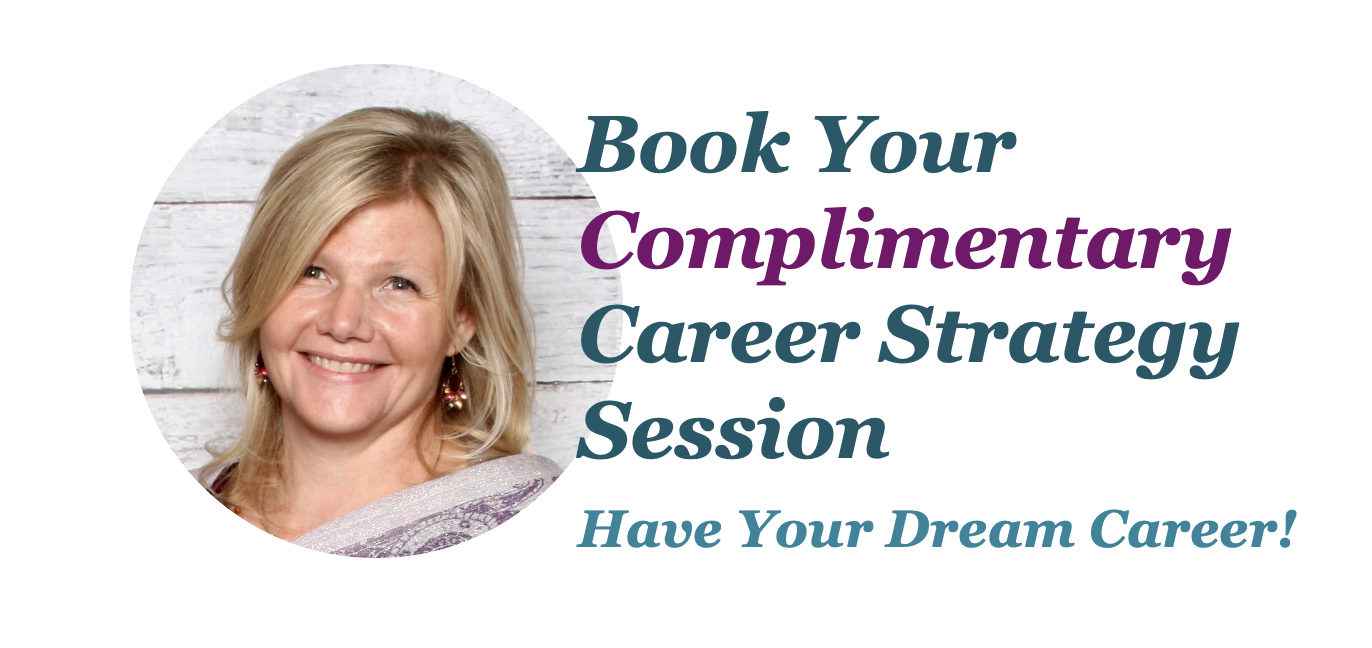|
It’s said that we are our own harshest critics. But have you ever stopped to consider the cost of being so hard on yourself? Yes, there is a cost, and it’s a steep one. Unchecked, an inner critic is responsible for actively keeping you from taking healthy risks – the kind of everyday risks that support getting your dream career. I’ll give you an example: performance evaluations. These are a great example of how your inner critic can have a field day with your self-esteem (if you let it). Let’s explore this; what is the most immediate response your brain sends you when considering these questions:
If the first thing your brain gave you was objective, considered and measured responses, that is truly worth a celebration (good ice cream for you tonight)! Seriously, that is a BIG accomplishment. If your brain (like many) gave you crickets - or worse - judgement, then you have an active inner saboteur. Sadly, this source of sabotage is ground zero for holding you back in your career. Let me be specific; an inner critic means you may not hold healthy boundaries at work (working way more hours than you need to). You may not ask (or be thought of) for the interesting work assignments. You may intentionally stay under the radar with your manager and others who could help your career. Or (and this one is really soul crushing), you have a great career but are so anxious about your work and delivering that you aren’t enjoying it. It’s time to disarm your inner critic. Here’s how:
The truth is inner critics, imposter syndrome, etc. all “ring the catastrophe bell” in our psyches, telling us we are going to be “found out” and “fired”. It makes preparing for your performance review an emotional process, not an objective or uplifting one. Have you ever seen anyone get fired at a performance review? Very few people (VERY FEW) are ever fired for their performance - at any time of the year. You know this because in your career you likely worked with someone and wondered how they still had a job. There is someone who can be fired - your inner critic (and you’re the only one who can do it). Don’t let your inner critic hold you back, particularly during a performance evaluation; it’s the worst time to be passive about your career (or hard on yourself). Listen to what your inner critic has to say, then strip out the catastrophizing, be real about the facts. Celebrate what you’re learning by writing down answers to performance questions that tell the whole truth about your work this year. AND if no one told you today, you’re amazing and your team is lucky to have you.
0 Comments
It was a heartbreaking story of a performance review gone wrong. By the time this client reached me she was convinced performance reviews were a rigged process designed to put people down. It can feel that way when performance evaluations are done wrong. In her case, she trusted that the process would highlight her strengths as well as any opportunities for development. That’s not what happened. Instead, by the time her boss was done talking she felt like she was about to be fired and had nothing to offer her organization. She was speaking to me for career coaching because she wanted to quit and find a different job. This story might be familiar, and if it’s happening to you take heart (and don’t quit until you've read this blog). While you feel at the mercy of the review process, and your boss’s perspective on your work, you can influence both to ensure you get the performance review you deserve. Here are 6 ways to get a performance evaluation you’ll be proud of:
The truth is performance review processes are at best well-intentioned. My client and I worked on re-opening her evaluation so she could feel comfortable staying in her role knowing she had a bright future there. It wasn’t comfortable for her, but with perseverance (and through collaboration with her manager) she was able to shift her evaluation to one that highlighted both her accomplishments, and her opportunities. Putting yourself in the driver’s seat, not just for the review, but all year long, means you’ll have a better evaluation experience and your career gets the love it (and you) deserve.
Here’s something you didn’t know about me: I am a recovering micromanager. I love organization and predictability in the things that can be organized and predictable, because there is so much at work that is neither of those things. It was my way of bringing order to chaos. That is not a good reason to be a micromanager. It’s something I worked on early in my leadership career because this is what I learned micromanagement can’t do:
Micromanagement is a fear-based approach to leadership and everyone who’s ever been a leader has hit this “station” on the “leadership development train” (some disembark and set up camp, others just visit and move on). I mention this in case you have a micromanager in your life, so you can manage up, with insight. You see, common to all micromanagers is a deep caring about the work, and that’s the insight you need to help get a micromanager to relax their grip on your work. Check out these examples of micromanagement, and what you can do about them:
Communication is key to empowering yourself with a micromanager, as is being clear about what is working for you and what isn’t. As easy as it is to label, blame and judge a micromanager, that is noise and a distraction from what really needs your attention - open communication. Following these strategies, with insight and compassion, can keep your sanity at work, while building a better relationship with your boss. Win/win.
Maybe this has happened to you; you’re producing excellent results at work and yet your boss keeps giving the really interesting assignments to your colleague. What’s up with that? It’s not necessarily anything you’re doing; it could be what you’re NOT doing. You see, your boss is looking for results, and when they know someone delivers, they often keep sending the work their way. It means your boss is human and running on habit (we all do it). It’s up to you to provide them with the option of giving some of the good stuff to you. This means making yourself more visible, which may be something you don’t know how to do well, or feel uncomfortable doing. Would it help to know there are ways to do this that don’t involve your ego, or tooting your own horn? Keep reading. There are many compelling reasons why increasing your visibility at work is an important career move for you. Your colleague (who is getting all the work right now) may be wondering when the rest of the team is going to start pulling their weight (help a team mate out). Visibility (and the interesting work that comes with it) exposes you to different aspects of the work your team does, which is a great learning opportunity, setting you up for future successes. You build more credibility and broaden what people know about your expertise when you’re more visible. With higher visibility you’ll be considered for a more diverse set of work assignments, and that often leads to promotional opportunities. Worth the risk to get more work you’ll love? Oh yeah. Sitting quietly on the sidelines hoping your boss (or other leaders at your organization) will send something juicy your way does not get this done. You need to stick your head above the parapet, take a calculated risk, and get out in front. I promised you ways to do this that don't require bragging or other unsavoury behaviour that won’t align with your values (I got you). Here are 8 ways to attract more work you’ll love (and still love yourself):
Attracting the kind of work you love means you know what work that is. Make a list of the work you do today and enjoy. List the work you’d like to pass on when the opportunity presents itself and a list of the work you want to do, but haven’t had the chance yet. This acts as a guiding “north star” for the types of learning experiences, networking connections and other engagements you invest in at work. Plan yourself in and you’ll have more interesting work in no time.
It’s been a pretty great week. I’m killing it with my commitments, I’m starting to approach “Mom of the Year” territory and I’ve been effortlessly juggling all the balls. Until one dropped. And a wave of overwhelm engulfed me. If you’re like me, you may be getting tired of the pattern of feeling accomplished and then not feeling accomplished. So, I’m ending it - and you can too. Overwhelm is defined as “to overcome completely, as with great force or emotion” (Merriam-Webster), but the dictionary was no help in putting my finger on why it happens in the first place. Sitting with the feeling (actually, I took it out for coffee, this kind of spiritual gazing needs caffeine) I came to the realization I get overwhelmed when I deeply care about something or someone (point to Merriam-Webster for being on the nose about the emotion). I care about the commitments I’ve made to others. I care about doing right by my family. I care about making a difference to others in meaningful ways. But why does caring have to mean feeling overwhelmed? As it turns out, it’s an early warning system for when you forgot to care about the most important thing in your life: yourself. So, here’s how you can stop the cycle, stepping out of overwhelm:
You don’t get to choose when you get overwhelmed, but you do get to choose what you do about it. Grounding yourself in what matters most can give you the drive to see something through, with the compassion to take care of yourself. This may include saying “no” to work. This may mean asking for an extension or adjusting the expectations of others to match the reality of the situation. Remember, you can always ask for help. You can’t pour from an empty cup, and nothing sucks a cup dry as quickly as being overwhelmed. Stop overwhelm in its tracks, you now have the steps to keep it from impacting your well-being and your intentions.
I’m tempted to take a social media break. Most of the time I take in social media with a light-hearted stride, enjoying the pictures of fun events, familiar faces from across the country, hilarious videos, interesting business articles. But every now and again something I see stops me mid-scroll and makes me wonder if I am good enough. It’s ridiculous, and yet social media can bring on feelings of flaw with the speed of the ultra-violet light that illuminates the app. I shake off these feelings, knowing that “Comparison is the thief of joy” (attributed to Teddy Roosevelt, C.S. Lewis and a few others), but every now and again there is something - the accomplishment of a peer, the success of a former colleague or classmate - that will take up a considerable piece of mental real estate. In essence, I let my inner critic live rent-free in my head…with a megaphone. I’m truly happy for friends and acquaintances who’ve reached important milestones in their lives and careers, so what’s up with the shame-bath? It’s a human thing. Clearly there are unrequited desires in me I wasn’t aware of (or giving enough attention to). These are the things I’ve discarded because I’m afraid of them, I’m ignoring them, they’re impractical or feel like they’re too far out of a reach for me. Rather than being flushed out of my system, my soul quietly gathered them up from the discard pile and gave them a home. Comparison then is a “fail safe” for unrealized dreams, making sure you don’t count yourself down, out or label yourself as “not enough” – but it only works if you peel the layers of self-doubt and wade through the feelings of flaw to get to your desires underneath. It’s worth it; you’ll find those things you can’t let go of because they still have an important role to play in your life and career. Here’s a look at the opportunities comparison can illuminate:
Listening to yourself is key to doing something constructive with comparison. This can include talking to someone you trust when you need more perspective or having a strategy for letting a thought go when it is not serving you (I like to visualize it written on a piece of paper and throwing it in the trash…if it comes back, I set it on fire…sounds simple and it works). Social media has evolved over the years, and it’s important to keep in mind individuals post things about their best life and ideals, and corporations post things to make you buy into something (mentally or financially) you probably don't need. None of it is “real life”, and you need to filter for that (which may include taking a break from the medium). Comparison can be the thief of joy – if you let it. It can also be the fertile ground from which you explore what you really want out of your life. Beyond the soul-gazing, please also know you have strengths and weaknesses and are evolving and learning (we all are), so be kind to yourself. Here’s one final visualization for you - popcorn is prepared in the same pot, in the same heat, in the same oil, and yet… the kernels do not pop at the same time. Do not compare your career to anyone else’s, we all “pop” when it’s our time.
|
|
|







